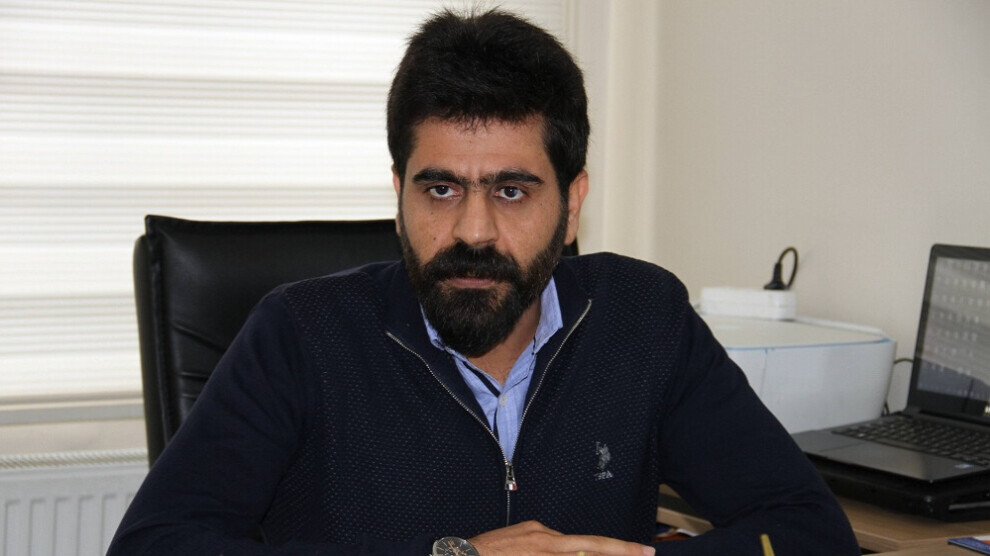ÖHD co-chair, lawyer Bünyamin Şeker, said that those outside should ask themselves ‘what are the demands of the prisoners, why they went on hunger strike, what are we missing?’ and work to find answers to this rather than simply state support for the strikers.
The indefinite-alternating hunger strike launched by PKK and PAJK prisoners in Turkish prisons on 27 November demanding an end to the isolation imposed upon Kurdish people's leader Abdullah Öcalan have been continuing for over two months. Bünyamin Şeker, co-chair of the Free Lawyers Association (ÖHD), who closely monitors the hunger strikes and the prisoners' situation, talked to ANF.
How many people are on hunger strike?
It is a little difficult to keep track of the exact number because it goes on in an alternated way. We know this much: currently the hunger strike is going on in 107 prisons.
The attitude of the prison administrations has been frequently reflected in the media in previous protests. Which is the attitude in this process?
Disciplinary investigations are opened against prisoners on hunger strikes. There are also cases where those who go on hunger strikes are isolated from other prisoners and taken into cells. There are these problems especially in Diyarbakır No.1 and No.2.
What about the demands of the hunger strikers?
Their demands are social demands. They are demands that concern society. In the previous hunger strike, the democratic people had a call which went on like this: ‘End the hunger strike without any loss of life. Your demands are demands that concern society. As social opposition, we will do our part to make sure these demands are met...’ The deepening of the isolation imposed upon Mr. Öcalan, the continuation of the state repression on the society, the increasing pressure on the opposition show that the necessary actions have not been taken.
If the democratic people had followed a different path, would this have happened now?
The hunger strikes might not have happened again. The prisoners who cannot find an alternative method to express themselves between the four walls unfortunately express themselves in this way. ‘We have our word to say also on the agenda of Turkey’, the prisoners say. ‘This is the way we convey our word from prison while so many attacks are going on and so many people are being arrested.’Those outside, on the other hand, should those outside should ask themselves ‘what are the demands of the prisoners, why they went on hunger strike, what are we missing?’ and work to find answers to this rather than simply state support for the strikers.
It is often said that the isolation is imposed on all Kurds. How do you evaluate the isolation in Imralı?
It would be a mistake to say that it is imposed only on North Kurdistan and the Kurds. Today you need to look at the whole of Turkey. There is a general pressure factor not only on Kurdistan and the Kurds. Isolation means repression of the society. Although a very serious repression is reflected on the society through the HDP, other democratic groups cannot make their voices heard as a whole. It would be to narrow the extent of isolation if we were just talking about the isolation imposed upon Mr. Öcalan, in fact, this is what my system also wants.
We have to avoid falling into this trap. There is an isolation on Mr. Öcalan which has continued for 22 years. This isolation never ended. Since 2011, there have been efforts to isolate him from the society. Family and lawyer visits have been restricted or denied altogether and he was able to use his phone right once in 21 years. You have to see all the other dimensions of public opinion in Turkey. Turkey needed to see. As a result, a hunger strike was launched. All of the opponents are in prison.













